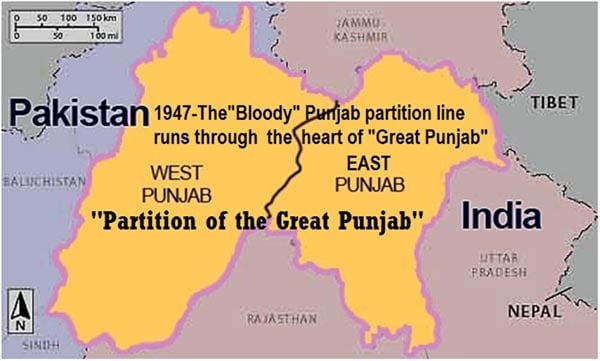Discover the intense Sikh-Muslim conflict in Punjab over the sacred Gurdwara Shahidganj site in Lahore from 1935 to 1940. Learn about its historic significance.
BHIKHAN SHAH OR SHAH BHIKH, PIR, a seventeenth century Sufi saint, was born the son of Sayyid Muhammad Yusaf of Siana Sayyidari, a village 5 km from Pehova, now in Kurukshetra district of Haryana. For a time, he lived at Ghuram in present day Patiala district of the Punjab and finally settled at Thaska, again in Kurukshetra district. He was tlie disciple of Abul Mu`ali Shah, a Sufi divine residing at Ambhita, near Saharanpur in Uttar Pradesh, and soon became a pfr or saint of much repute and piety in his own right. According to tradition preserved in Bhai Santokh Singh, Sri Gur Pratap Suraj Granth, Pir Bhikhan Shah, as he learnt through intuition of the birth of Guru Gobind Singh (1666-1708) at Patna, made obeisance that day to the east instead of to the west.
COMMUNAL AWARD was an official statement of British government policy in respect of the composition of provincial legislatures as a further step in the transfer of responsibility to the Indian people. The Secretary of State for India presented the terms of the Award to Parliament as command paper 4147, and they were published on 16 August 1932 under the title Communal Decision. The terms of the Award defined the methods of selection and the relative strength of representation of various "communities" in the legislatures as they were expected to be formed under provisions of a new constitution for a federation of Princely Indian states and British Indian provinces, which was being devised at the time and which was given final shape later in the Government of India Act of 1935.In effect, the Award was a political settlement worked out for the people of British India by officials in London.
Discover how the demand for Pakistan's creation led to the historic Partition of Punjab in 1947, reshaping the future of India and its Muslim population.
Explore the Sikh role in India's transition from British rule, from the Gurdwara Reform movement to confronting Muslim communal claims in Punjab.
Discover the fascinating journey of Jacob Thomas, son of Irish adventurer George Thomas, from serving Begam Samru to commanding in Ranjit Singh's army.
Explore the AZAD PUNJAB scheme's impact on Sikh politics and the quest for fair representation in pre-independence Punjab's legislative council.




